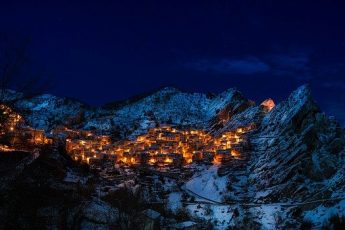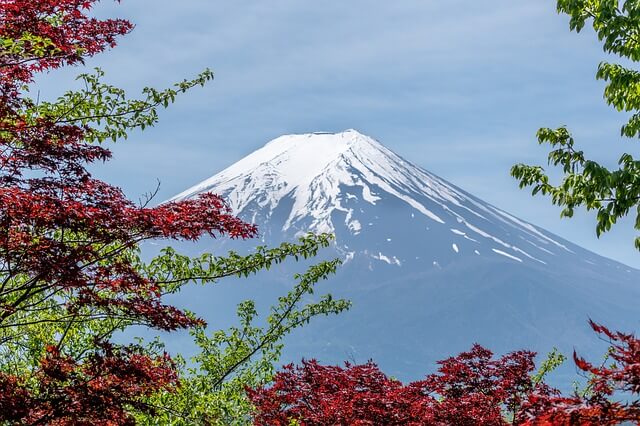In the imagination of many tourists who are going to visit Spain for the first time, this is a country with a hot climate, the shores by the Atlantic Ocean and the Mediterranean Sea. It also has mountain slopes with vineyards and thickets of olive trees, under which spicy herbs grow.
The country of flamenco and bullfighting, odorant wines, tasty Paella with seafood and delicious Jamon, ripening in caves for a long time
Is all this really so?
What else can Spain surprise with? Amaze or interest even the most satiated tourist who has visited many different countries? As it turns out, the inhabitants of this sultry state still have many secrets.
1. LANGUAGE DIVERSITY
The subordinates of the King of Spain communicate among themselves, using several different languages at once. In addition to Castile, which is called Spanish all over the world, the Galician, Basque, Valenciano and Catalan languages have the status of official means of communication. And besides these, in various regions of the state Aragonese, Asturias and Occitan people use local dialects quite actively.
2. SPAIN – THE MONARCHIC STATE
The Spanish monarch, who occupies the throne at the moment, is one of the youngest in Europe.
King Philip VI ascended the throne only in 2014 at the age of 48
It is noteworthy that his wife, Queen Letizia, comes from a simple family. Her father is a journalist, her mother is a nurse, she herself worked on the television and had a family before.
3. CORRIDA
Bullfighting, despite the opinion of some vegetarians, pacifists and animal advocates, relates more to public spectacles glorifying the agility and courage of a particular person. It is not the apotheosis of sadism or mockery of defenseless animals.
Of course, the bull always dies in the confrontation with the bullfighter. But a person has considerable chances not to leave the arena on his own feet. Although in the history of bullfighting, this happened only twice.
This spectacle, rightfully, is one of the most important elements of the culture of the Spanish people. This constantly emphasizes its difference from other European nations even by the fact that under the pressure of the world community such traditional entertainment has not yet been banned – no matter what.
However, in Catalonia, adherents of old traditions are losing their position a little – the local government has already banned bullfighting.
4. NATIONAL ANTHEM
It would be a big surprise, but the Spanish hymn “Royal March” does not contain an officially approved text, therefore they play only its melody as a rule. Composer Casas wrote this melody at the beginning of the 20th century.
5. CHRISTMAS
The Christmas tree, as an attribute of this holiday, of course exists in Spain. However, it is not as popular as in other European countries.
The true symbol of the Christmas holiday in the Spanish kingdom is the grandiose lottery that takes place on December 22
Usually almost the entire population gets the interest in it. Even during the Civil War, when the troops of General Franco and the Republicans were on opposite sides of the barricades, no one dared to break this tradition. Both warring parties held their lotteries, strictly following traditions.
6. NATURE OF SPAIN
There a lot of green areas and parks in Spanish capital: 250,000 hectares of the entire territory of Madrid. This is part of the Royal Botanic Garden, which has more than 30,000 species of plants, both local and other climatic zones. In addition, it is worth knowing that in the capital of Spain you can visit the largest city park in all of Europe, called Casa de Campo (1722,6 hectares). Previously, this territory was used for royal hunting.
7. OLIVES AND OLIVE OIL
Spain is one of the largest producers and suppliers of olive oil in the world.
Olive products from Andalusia make up at least 33% of the total world product volume which enters the domestic and foreign market
This may seem like a curiosity, but many Italian producers extract their olive oil precisely from Spanish olives. It happens since there are too few olive groves left in their native Italy and they are not able to cover all needs.
8. RELIGION AND HABITS
In this friendly country, marriages between citizens of the same sex are pretty common and legal, despite the fact that the majority of the population is Catholic.
There is siesta, a mandatory afternoon break. It can last from 20 minutes to 2 hours.
Due to the exhausting daytime sun, the Spaniards prefer walking in the evening and at night
Their dinner also begins late, 8-10 pm – this is the norm for them. Still the Spanish do not have problem with the extra weight.
In addition, a holiday such as Tomatina is widespread in Spain. It happens annually. The bottom line is that people throw tomatoes around each other. This entertainment attracts many tourists as well.








